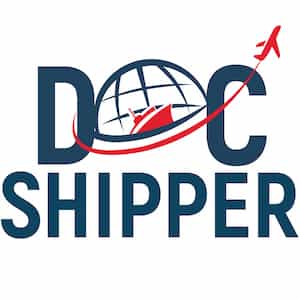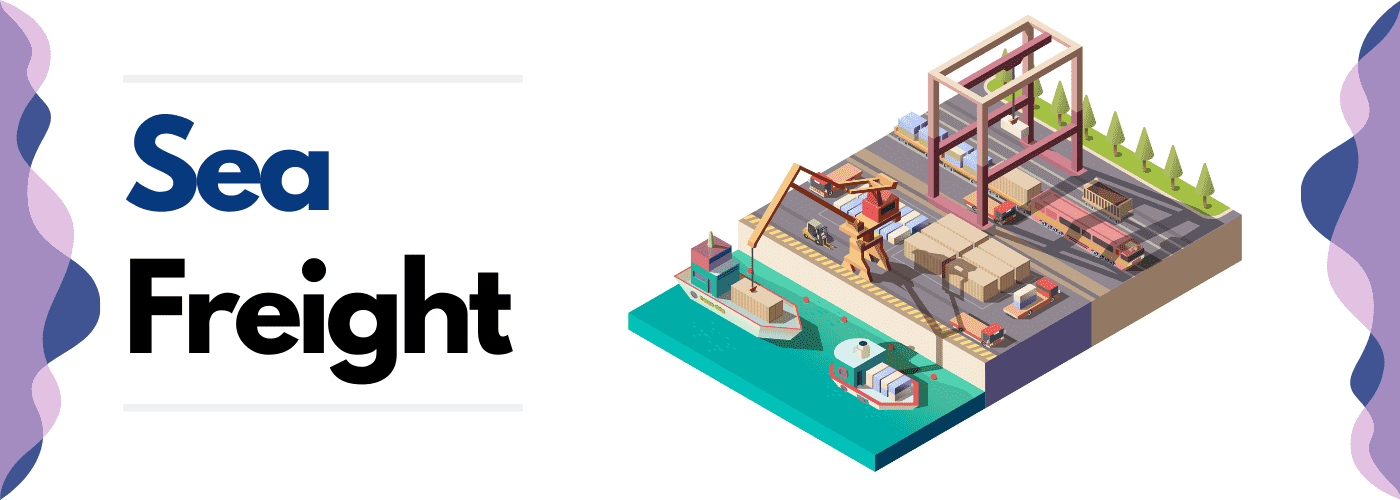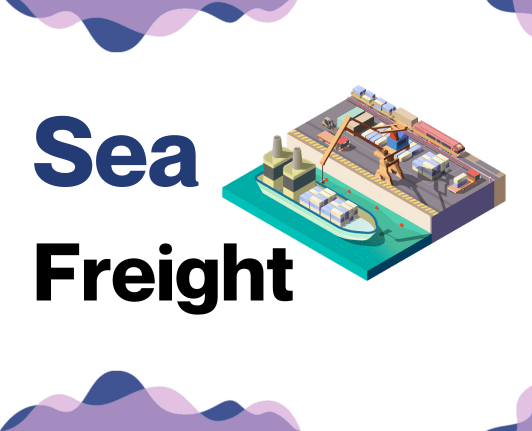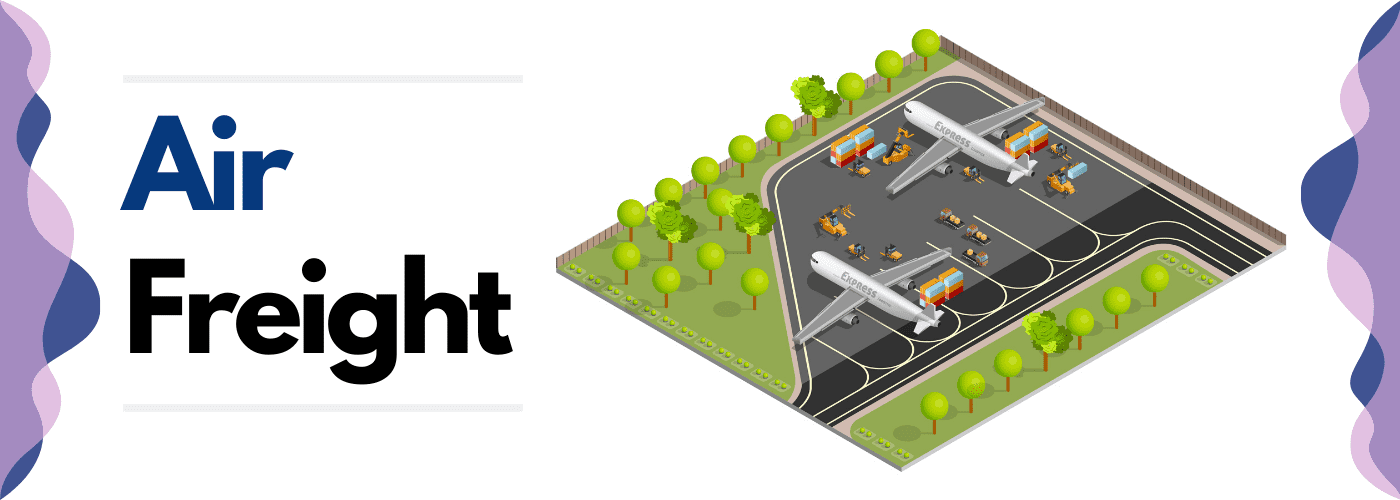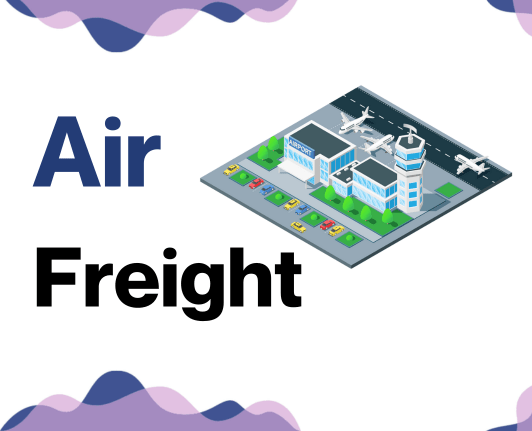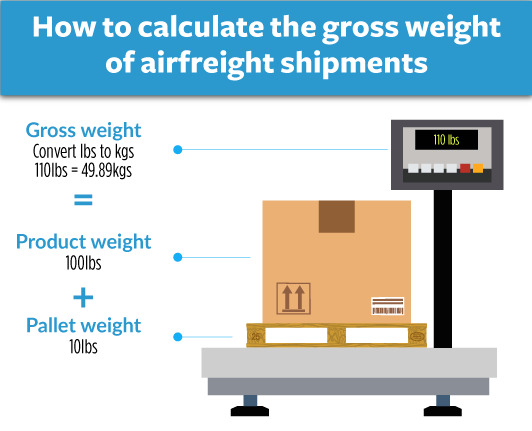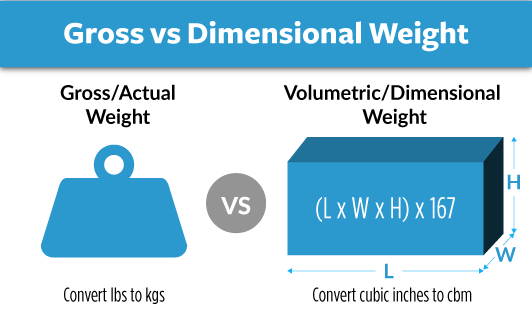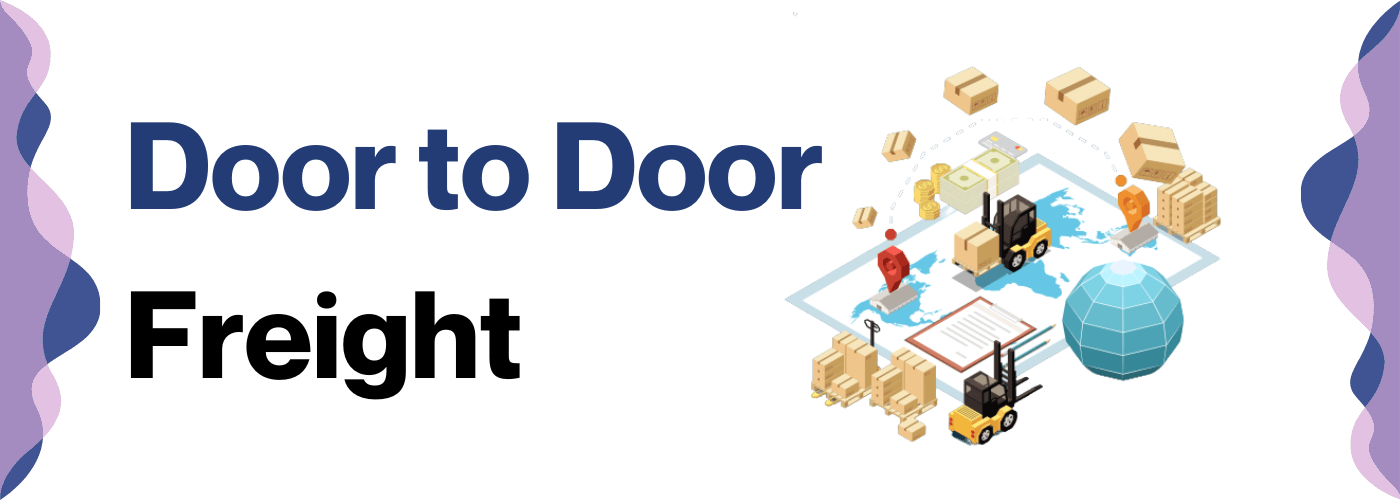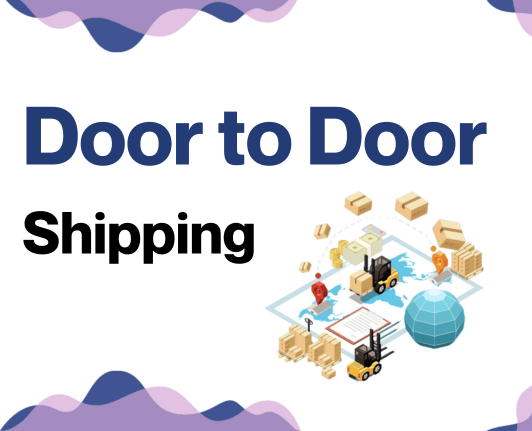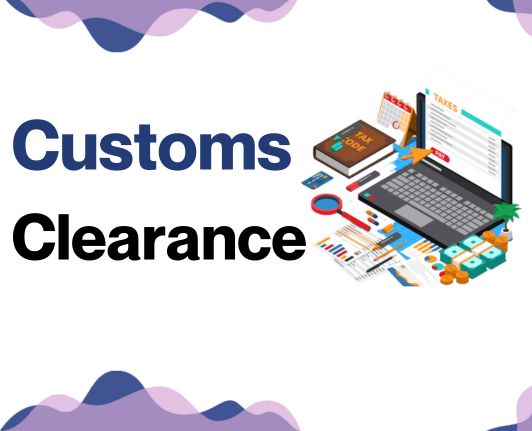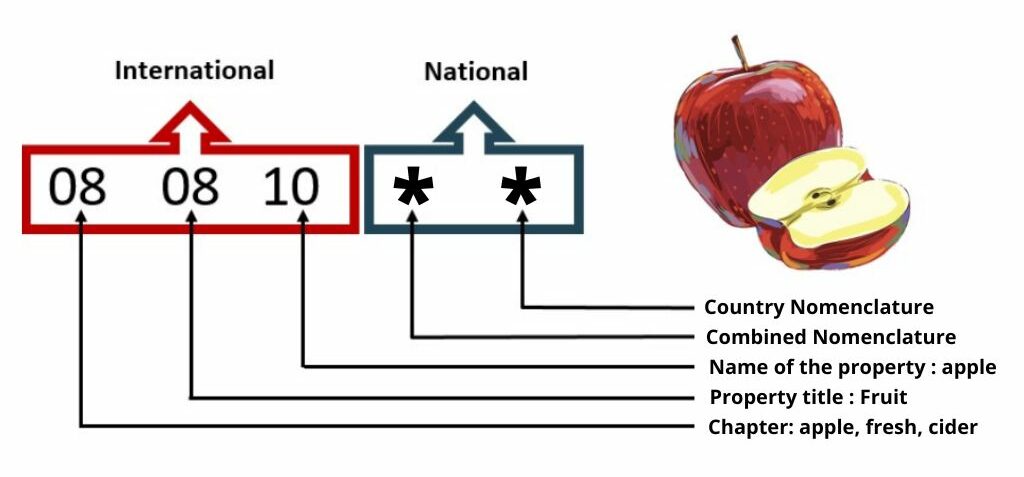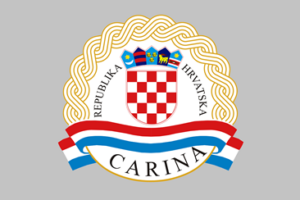Why did the shipment go on a journey from Malaysia to Croatia? Because it couldn't resist the bountiful beauty of Croatia's ports! Jokes aside, international shipping can prove to be a complexity, with factors like fluctuating rates, nailing transit times, and navigating customs regulations throwing up multiple challenges. This guide is designed to demystify this process, providing comprehensive insights into your freight options, whether it be by air, sea, road or rail, traversing the intricate landscape of customs clearance, duties, taxes, and offering tailored advice to ensure your business doesn't miss a beat. If the process still feels overwhelming, let DocShipper handle it for you! As an expert international freight forwarder, we blissfully transform every challenge into seamless success for your business, taking care of all your shipping needs from start to finish.
Table of Contents
Which are the different modes of transportation between Malaysia and Croatia?
Choosing the perfect transport method between Malaysia and Croatia is like finding the most comfortable pair of shoes. It's about weighing various factors like how quickly you need to get from A to B, the kind of journey you're in for, and what you're carrying along. While air freight provides the speediest delivery over our globe's broad waistline, ocean and road freight might suit bulkier hauls needing more travel time. It's a dance between speed, cost, and volume where the rhythm varies with your shipment's unique needs. Let's tiptoe through these options to hit the right note for your logistics melody.
How can DocShipper help?
Shipping goods from Malaysia to Croatia? The DocShipper team has got you covered! We handle all the logistics, from transportation to customs clearance, streamlining the process for a hassle-free experience. Need a free estimate? Reach out to us and our consultants will provide one in less than 24 hours. Have queries? Our lines are open, call us for free!
DocShipper Tip: Sea freight might be the best solution for you if:
- You're dealing with hefty quantities or oversized goods. Sea transport is your go-to for maximizing space without stretching your budget.
- Time sensitivity isn't a concern for your shipment. Ocean freight is known for its leisurely pace, especially when compared to the speed of air or rail.
- Your supply chain connects key international harbors. This positions you to take full advantage of a wide-reaching network of ocean trade routes.
Sea freight between Malaysia and Croatia
Malaysia and Croatia, two robust economies, share a dynamic trade relationship that vigorously swings across the vast azure of the ocean. The Port Klang in Malaysia and the Port of Rijeka in Croatia are vital transit points, forming the backbone of sea freight between these hubs of industry. Now, ocean shipping might not win any speed races, but when it comes to cost-effectively moving high-volume goods, it's your trusty workhorse. However, think of it like trying to maneuver a huge cargo ship – tricky, if you're unfamiliar with seafaring intricacies. Many businesses trip over the cumbersome ropes of customs regulations, paperwork nitty-gritties, and hidden costs. But fret not. Picture this guide as your seasoned sea-captain, ready to navigate you through these choppy waters with best practices and crucial specifications that make shipping between Malaysia and Croatia as breezy as an Adriatic Sea summer. With a bit of insight and preparation, your freight can sail smoothly from the Straits of Malacca to the Croatian coast.
Main shipping ports in Malaysia
Port Klang
Location and Volume: Situated in Selangor, Port Klang is the major maritime gateway for Malaysia, boasting a shipping volume of over 13.2 million TEUs.
Key Trading Partners and Strategic Importance: Port Klang primarily trades with China, Singapore, and Indonesia, playing a crucial role in the ASEAN free trade area.
Context for Businesses: If you're looking to expand your operations in Southeast Asia, Port Klang serves as a critical nexus, offering navigational access all year round.
Port of Tanjung Pelepas
Location and Volume: Located in Johor, the Port of Tanjung Pelepas ranks as one of the largest ports in Malaysia with a handling volume of over 9 million TEUs.
Key Trading Partners and Strategic Importance: Mostly trading with China, Singapore, and the European Union, this port is favored by international shipping lines due to its strategic positioning near the main Asia-Europe shipping lanes.
Context for Businesses: If your enterprise operates primarily between Asia and Europe, the Port of Tanjung Pelepas provides an advantageous route for your logistics chain, coupled with high-end port facilities.
Port of Penang
Location and Volume: The Port of Penang, positioned on the Northwest Peninsular Malaysia, is a key player in the region with a throughput of over 1.9 million TEUs.
Key Trading Partners and Strategic Importance: The port mainly trades with China, India, and Indonesia, and it is integral to the national and regional maritime economy due to its comprehensive port facilities.
Context for Businesses: For businesses targeting the bustling markets of the Indian subcontinent, the Port of Penang's location and facilities, including a free commercial zone and extensive warehouse storage, can be instrumental.
Bintulu Port
Location and Volume: Positioned in Sarawak, Bintulu Port is an important hub for energy-related cargo with a shipping volume that exceeds 45 million tonnes annually.
Key Trading Partners and Strategic Importance: Bintulu Port primarily deals with domestic trade as well as transactions with China, Japan, and Korea. It holds immense strategic significance as Malaysia's major gateway for LNG exports.
Context for Businesses: If your trade involves energy resources, especially LNG, Bintulu Port offers specialized facilities making it a go-to point for your supply chain needs.
Port of Johor
Location and Volume: Situated in the southern region of Peninsular Malaysia, the Port of Johor handled around 1 million TEUs in recent years.
Key Trading Partners and Strategic Importance: Major trade partners include Singapore, Indonesia, and China. This port plays a vital role mainly because of its location between the bustling Strait of Malacca and the South China Sea.
Context for Businesses: Businesses aiming to capitalize on the active trade in the Strait of Malacca and South China Sea may find the Port of Johor advantageous in their logistical decisions.
Port of Miri
Location and Volume: Located in Sarawak, the Port of Miri is a smaller port with a shipping volume of 600,000 TEUs, mainly handling liquid and general cargo.
Key Trading Partners and Strategic Importance: Port Miri's main trading partners are within Asia, including China, India, and Singapore. Its proximity to Brunei emphasizes its strategic significance.
Context for Businesses: The Port of Miri could be relevant for businesses dealing in the petroleum industry as it facilitates most of Sarawak's petroleum-related cargo, providing comprehensive services for liquid cargo.
Main shipping ports in Croatia
Port of Rijeka
Location and Volume: Located on the Kvarner Bay, an inlet of the Adriatic Sea, Rijeka is the third-largest city in Croatia and hosts one of the busiest ports in the country. As Croatia's main international port, it handles over 14 million tons of cargo annually.
Key Trading Partners and Strategic Importance: Rijeka's key trading partners are Italy, Germany, and Austria, among other EU countries. As an essential hub in the Adriatic-Ionian transport corridor, it is strategically important for landlocked countries in Central Europe.
Context for Businesses: If you're looking to reach the Central European markets efficiently, Port of Rijeka offers a valuable route through its developed railways and road network. Its competitive fees and sophisticated logistics services, such as container handling, make it a suitable option for a variety of goods.
Ploče Port
Location and Volume: Ploče Port, situated at the end of the Neretva river on the coast of South Dalmatia, is the second largest cargo port in Croatia. With a shipping volume of around 4.5 million tons per year, Ploče is a vital transport junction.
Key Trading Partners and Strategic Importance: Its central geographical location in the Adriatic Sea ensures connections with Italy, Malta, and Spain. Its significance is further amplified by being the shortest sea connection between Central Europe and the world.
Context for Businesses: Industries looking to route traffic from Central and Southeastern Europe will find Ploče Port indispensable due to its central location and the array of cargo it can handle, including dry bulk, liquid bulk, and general cargo.
Port of Zadar
Location and Volume: The Port of Zadar, located in the heart of the Adriatic, is the largest passenger port in Croatia. It also serves as an important cargo port, with a yearly handling volume of over 3 million tons.
Key Trading Partners and Strategic Importance: Regular cargo flow is maintained with Italy, Greece, and Slovenia. Zadar's strategic position makes it a critical point for importing and exporting goods across Croatia and neighboring countries.
Context for Businesses: For businesses working in passenger transportation or tourism, or those dealing with containerized goods, Zadar offers unmatched access to the Mediterranean and seamless connectivity with other European ports.
These three ports represent some of the key maritime gateways of Croatia. Understanding their specific attributes and operational capabilities can aid in formulating effective shipping strategies into and out of the region.
Should I choose FCL or LCL when shipping between Malaysia and Croatia?
Choosing between Full Container Load (FCL) and Less than Container Load (LCL), also known as consolidation, for your sea freight from Malaysia to Croatia, is a key strategic decision. This choice not only affects your cost and delivery time but also plays a major role in the overall success of your shipment. An understanding of these two options and their distinctions will empower you to select the best fitting solution for your specific shipping needs. Let's dive into the specifics, so you can make an informed decision.
LCL: Less than Container Load
Definition: LCL (Less than Container Load) shipping is when your cargo doesn't fill an entire container and is consolidated with other cargos into a single container.
When to Use: Lean towards LCL when your cargo volume is less than 13/14/15 cubic meters (CBM). This option gives you flexibility and efficiency as you only pay for the space your freight occupies. Also, LCL shipment makes sense if you don’t require a full container and need to send cargo immediately.
Example: Suppose your business involves import of specialized machinery parts from Malaysia to Croatia. The volume occasionally fluctuates and often comes under 15 CBM. Instead of waiting to fill a full container, opting for LCL freight would allow parts to reach faster, keeping your operations running smoothly.
Cost Implications: With LCL, you pay per CBM making it more cost-effective for smaller shipments. However, be aware of additional costs like LCL fees and warehouse handling charges, which can add up if not properly managed. A detailed LCL shipping quote can help avoid hidden charges and give you clear cost visibility.
FCL: Full Container Load
Definition: FCL, or Full Container Load, shipping refers to the exclusive use of an entire container for your goods. Whether it is a 20'ft or a 40'ft container, in FCL shipping, it is exclusively yours.
When to Use: FCL is the best choice when your shipment exceeds 13/14/15 Cubic Meters (CBM); the safety of your cargo is a priority, and you require a competitive fcl shipping quote. This is because when using FCL, the container remains sealed from origin to destination, providing additional security.
Example: Let's say a Croatian furniture company is exporting 15 CBM of tables to Malaysia. Choosing FCL, their products would occupy a 20'ft container. The extra space allows for safe packing without the risk of damaging goods.
Cost Implications: FCL shipping is generally more cost-effective for larger volumes; the higher the quantity, the cheaper the rate per CBM. As the container is exclusive to your goods, there are no costs associated with consolidation or deconsolidation. However, be aware that you pay for the full container, even if it's not entirely filled.
Unlock hassle-free shipping
With DocShipper, international shipping becomes a breeze. Our seasoned freight experts are here to help your business select the optimal transport solution, be it consolidation or a full container. Factors like your budget, time constraints, and cargo size dictate the right course. Have uncertainties about your Malaysia-Croatia cargo route? Let our ocean freight connoisseurs ease your woes while ensuring the best-fit shipping method. Ready to have a seamless shipping experience? Contact us today for a free, no-obligation estimate. Count on DocShipper where your shipping needs are our priority.
How long does sea freight take between Malaysia and Croatia?
Navigating the waters between Malaysia and Croatia by sea freight typically takes approximately 30 to 45 days. However, keep in mind transit times can be influenced by variables such as the specific ports used, the weight of the shipment, and the nature of the goods. For the most accurate estimate, it's always best to consult with an experienced freight forwarder like DocShipper to provide a tailored quote.
Following are the estimated average transit times for sea freight between the major ports in both countries:
| Freight Port in Malaysia | Freight Port in Croatia | Average Transit Time (Days) |
| Port Kelang | Port of Rijeka | 33 |
| Port of Tanjung Pelepas | Port of Ploče | 41 |
| Port of Penang | Port of Zadar | 43 |
| Port of Johor | Port of Split | 37 |
*Please note that these are just average transit times and actual shipping times may vary based on various factors. For exact transit times, kindly get in touch with us for a detailed and customized quote.
How much does it cost to ship a container between Malaysia and Croatia?
Shipping a container between Malaysia and Croatia isn't a one-size-fits-all calculation. Several factors, including the Point of Loading and Destination, carrier selection, nature of your goods, and even monthly market fluctuations play a part in defining the ocean freight rates. Giving an exact cost is no easy feat. But fear not! Our shipping specialists are on hand to delve deep into your specific needs and get the best shipping cost for you. From cargo to customs, we examine each case individually to ensure you receive a quote that's as unique as your shipment. Remember, when it comes to freight forwarding, our aim is service tailored to you.
Special transportation services
Out of Gauge (OOG) Container
Definition: Out of Gauge (OOG) container is a special shipping method used for cargo that doesn't fit within the dimensions of standard containers like 20’GP, 40’GP or 40’HC. These are often flat racks or open top containers.
Suitable for: Large machinery, oversized industrial parts, construction materials, and anything else exceeding standard dimensions.
Examples: Large turbines, jet engines, construction equipment.
Why it might be the best choice for you: If your business deals with oversized or heavyweight maritime trade between Malaysia and Croatia, OOG containers may streamline your shipping process, keeping your goods secure while adhering to necessary regulation.
Break Bulk
Definition: Break bulk refers to the handling and transportation of individually loaded goods or loads bundled in crates, bags, or drums. Instead of using containers, these goods are loaded directly onto the vessel.
Suitable for: Commodities that are shipped in smaller individual lots or sizes not suited for a container.
Examples: Construction materials, steel plates, machinery, sacks of cocoa or coffee beans.
Why it might be the best choice for you: If you're shipping a variety of loose cargo loads not suited for containers, break bulk provides a flexible shipping option that allows you to manage the load size according to your needs.
Dry Bulk
Definition: Dry bulk shipping involves transporting unpackaged goods in large quantities, handled and transported in bulk form without any packaging.
Suitable for: Commodities generally characterized as dry goods like malt, grain, coal, minerals, and ferroalloys.
Examples: Bulk shipments of barley, gypsum, or limestone.
Why it might be the best choice for you: Dry bulk shipment could be perfect for transporting high volumes of material such as agricultural produce or mineral resources. The loose nature of these goods makes them more suitable for this transportation method and it can often be a cost-effective solution.
Roll-on/Roll-off (Ro-Ro)
Definition: Roll-on/Roll-off (Ro-Ro) is a specialized shipping method where vehicles and machinery are driven on and off a Ro-Ro vessel, eliminating the need for cranes or other lifting equipment.
Suitable for: Any wheeled cargo such as cars, trucks, semi-trailer trucks, trailers, and railroad cars.
Examples: New and used cars, farming equipment, construction machinery.
Why it might be the best choice for you: Ro-Ro service provides efficiency and speed for enterprises needing to transport large, operable machinery or vehicles. It's a secure, hassle-free method which ensures minimal handling of your vehicles, reducing the risk of damage.
Reefer Containers
Definition: Reefer containers are refrigerated shipping containers designed to transport temperature-sensitive cargo, capable of maintaining a specific climate for the goods throughout their journey.
Suitable for: Fresh or frozen food items, pharmaceutical products, and any perishables requiring a cool or frozen environment.
Examples: Fresh fruits and vegetables from Malaysia, medicinal products that need to be stored at low temperatures.
Why it might be the best choice for you: If you're in the business of shipping perishables, a reefer container is designed to ensure your goods arrive in optimal condition.
DocShipper, your logistics partner between Malaysia and Croatia, is ready to guide you in selecting the best sea-freight option for your specific needs. Contact us today, and receive a free shipping quote in less than 24 hours. You won't regret choosing us as your professional guide in international freight forwarding.
DocShipper Tip: Air freight might be the best solution for you if:
- You're pressed for time or facing a non-negotiable deadline. Air freight delivers unparalleled speed when it comes to transit times.
- Your shipment is modest in size, falling under 2 CBM. Air freight is particularly well-suited for these smaller consignments.
- Your supply chain includes destinations that are off the beaten maritime or rail paths. Air freight gives you access to a comprehensive global airport network.
Air freight between Malaysia and Croatia
When Easter bunnies are darting across Croatia faster than Durian fruit ripening under the Malaysian sun, you know you've got air freight to thank. A champion for time-critical shipments, air freight makes the speedy and reliable transit of small, high-value goods, like electronics and pharmaceuticals, a breeze. Bestowed with features like precise tracking and reduced need for warehousing, air freight can often work out to be more cost-effective than you might think.
But here's the kicker - while shipping your precious cargo across the skies, some unexpected turbulence may hit your budget. Why? Simple oversights. Mistakes in calculating the volumetric weight rather than the actual weight of your goods can steer your cost analysis off course. Not to mention, leaving out some smart air freight strategies may turn into costly missed opportunities. We'll unravel these fine print details in the sections below, helping you navigate the turbulent skies of air freight without a sweat. Remember, a well-filled basket makes the best bunny leap. Let's make sure your air freight story unfolds the same way.
Air Cargo vs Express Air Freight: How should I ship?
Deciding between air cargo and express air freight for your Malaysia-Croatia shipments can seem like a tough call. Here's a simple way to view it: imagine flying commercial with your goods (that's air cargo) versus chartering your own jet exclusively for your shipment (that's express air freight). This guide is all about helping you evaluate which flight ticket better suits your business needs based on factors like cost, transit time, and shipment size.
Should I choose Air Cargo between Malaysia and Croatia?
Considering air cargo for your freight between Malaysia and Croatia could be a great choice, offering cost-effectiveness and reliability. For instance, airlines like Malaysia Airlines and Croatia Airlines open vast logistics routes. However, longer transit times may occur due to their fixed schedules. From 100kg, or around 220 lbs of cargo, the airline route becomes even more appealing. Your budget could significantly benefit from these cost-efficient solutions.
Should I choose Express Air Freight between Malaysia and Croatia?
Express Air Freight is a unique service using exclusive cargo aircrafts that carry no passengers. If your shipment is below 1 CBM or weighs within 100/150 kg (220/330 lbs), this could be an ideal choice. Renowned courier firms like FedEx, UPS, or DHL provide this fast, reliable service, ensuring your cargo reaches Croatia from Malaysia in no time. Suitable for urgent or valuable shipments, opting for Express Air Freight can give your business an undeniable edge.
Main international airports in Malaysia
Kuala Lumpur International Airport (KLIA)
Cargo Volume: KLIA handles over 600,000 metric tonnes of cargo annually.
Key Trading Partners: Main trade partners include China, Singapore, Japan, United States, and Australia.
Strategic Importance: KLIA is one of Southeast Asia's major aviation hubs, positioned as a key gateway to fast-growing ASEAN markets.
Notable Features: KLIA boasts advanced cargo handling facilities, including the capabilities to handle temperature-sensitive and oversized freight.
For Your Business: KLIA's extensive global connections and advanced facilities make it an ideal choice for businesses looking to reach Asian and global markets, particularly for time-sensitive or specialty cargos.
Penang International Airport (PEN)
Cargo Volume: PEN is the nation's second busiest airport in terms of cargo traffic, with over 150,000 metric tonnes per year.
Key Trading Partners: Main partner nations include China, Hong Kong, Japan, Singapore, and the United States.
Strategic Importance: This airport serves as a crucial link to these key markets for businesses in northern Malaysia and southern Thailand.
Notable Features: PEN is notable for its strong links to critical global air cargo routes and for its specialized handling of electronic components' shipping.
For Your Business: If your business operates in the technology sector, consider utilizing PEN's strong record and reputation for electronics shipping.
Sultan Abdul Aziz Shah Airport (SZB)
Cargo Volume: This airport handles approximately 100,000 metric tonnes of cargo annually.
Key Trading Partners: Major trading partners include nations within the ASEAN region, China, Japan, and Australia.
Strategic Importance: SZB is strategically located near the nation's capital, bursting with domestic and international businesses alike.
Notable Features: SZB is a hub for corporate and private aviation, offering a unique blend of flexibility and convenience for specialized business needs.
For Your Business: If your shipping needs can be addressed with smaller scale, directed operations, SZB's diverse capabilities may be a sound choice.
Bintulu Airport (BTU)
Cargo Volume: BTU handles over 20,000 metric tonnes of cargo annually.
Key Trading Partners: Major trade partners include Singapore, Brunei, and countries within the ASEAN region.
Strategic Importance: Located near Sarawak's industrial and agribusiness hubs, this airport provides important logistics support to these sectors.
Notable Features: BTU stands out for its significant cargo handling capacity despite its smaller size.
For Your Business: If your company operates in agribusiness or industrial goods sectors and targets ASEAN markets, BTU's focus and location may align well with your needs.
Miri Airport (MYY)
Cargo Volume: MYY sees more than 15,000 metric tonnes of cargo each year.
Key Trading Partners: Key trading countries include Brunei, Australia, and ASEAN members.
Strategic Importance: MYY is situated near significant oil and gas reserves, making it important to the energy sector.
Notable Features: Aiding the transport of specialized oil and gas-related machinery, MYY offers capabilities for heavier and oversized freight.
For Your Business: If your business is within the energy sector and frequently transports bulky machinery, consider the specialized handling services of MYY.
Main international airports in Croatia
Zagreb Airport
Cargo Volume: Handling a volume of 13,000 tonnes annually, it is the largest cargo airport in Croatia.
Key Trading Partners: Major trading partners include Germany, Italy, Slovenia, Austria, and Bosnia and Herzegovina.
Strategic Importance: As Croatia's main international gateway, it's perfectly situated for handling cargo coming from and going towards Central Europe.
Notable Features: Equipped with modern facilities and a strategic location, Zagreb boasts direct connection to major European capitals and a dedicated cargo terminal.
For Your Business: If your business aims to target Central Europe markets, Zagreb Airport's strategic location and robust cargo facilities make it an excellent choice for shipping goods.
Pula Airport
Cargo Volume: Pula Airport has a capacity of handling 5000 tonnes of air cargo annually.
Key Trading Partners: The airport has its major trading partners as Italy, Germany, Russia, Austria, and France.
Strategic Importance: Pula Airport is strategically located on the Adriatic Sea and is important for cargo handling from the Mediterranean region.
Notable Features: It features a modern cargo terminal and convenient connection to major Mediterranean ports.
For Your Business: If your business entails frequent shipments to the Mediterranean region, Pula Airport's location and capacity could be beneficial.
Split Airport
Cargo Volume: The airport handles approximately 2500 tonnes annually.
Key Trading Partners: Key trading partners include Italy, Germany, Bosnia and Herzegovina, Slovenia, and Austria.
Strategic Importance: Split airport is a vital gateway to the Dalmatian coast and is an important cargo handling point for southern Croatia.
Notable Features: Split airport features a new terminal with advanced cargo facilities and direct flights to major European destinations.
For Your Business: If your business involves the import/export of goods to the Dalmatia region or if your business is in the tourism industry, Split Airport should be on your radar.
Dubrovnik Airport
Cargo Volume: Handles about 1000 tonnes of cargo annually.
Key Trading Partners: Important trading partners include Germany, Italy, Austria, UK, and Slovenia.
Strategic Importance: Not only a tourist hotspot but an important outlet for international cargo especially during the summer season.
Notable Features: Dubrovnik Airport hosts charter flights worldwide, making it a flexible option for cargo handling.
For Your Business: If your business has a seasonal element, especially linked to tourism, or demands flexibility in terms of destinations, Dubrovnik Airport is worth considering for your shipping strategy.
Rijeka Airport
Cargo Volume: Handles approximately 500 tonnes annually.
Key Trading Partners: Major trading partners include Italy, Germany, Austria, Slovenia, and Hungary.
Strategic Importance: Rijeka Airport is an essential cargo airport in the Kvarner region and a key freight hub for islands of Northern Adriatic.
Notable Features: It's proximity to the Rijeka Port and the Pan-European Corridor Vb, makes it a significant logistics point.
For Your Business: If you are operating in the Northern Adriatic region or if your business needs a connection to the Pan-European corridor, Rijeka could be an optimal choice.
How long does air freight take between Malaysia and Croatia?
Shipping between Malaysia and Croatia by air freight typically takes between 3 to 5 days. However, it's essential to note that this is an estimated time and actual transit times may vary. Several factors contribute to this variation, like the particular airports of origin and destination, the weight of the goods, and their nature. Therefore, for precise shipment times tailored around your business's specific needs, it's wise to consult with a trusted freight forwarder like DocShipper.
How much does it cost to ship a parcel between Malaysia and Croatia with air freight?
Expect to pay approximately between $4 and $6 per kilogram for air freight shipping between Malaysia and Croatia. However, it's critical to understand that this is a broad average. Actual costs can vary, influenced by factors like distance from the airport, dimensions and weight of the parcel, as well as the nature of the goods. We firmly believe in personalized solutions, and our team is committed to providing you with the most competitive rates tailored to your specific needs. So why not contact us now? Receive a free, no obligation quote in less than 24 hours.
What is the difference between volumetric and gross weight?
Gross weight refers to the actual physical weight of a shipment, including the goods and any packing material or pallets. Conversely, volumetric weight, also called dimensional weight, is a pricing technique for commercial freight transport, taking into account the space a package occupies in relation to its actual weight.
To calculate gross weight in air freight shipping, the total weight of the items, packaging, and pallet (if used) is simply measured in kilograms. For instance, if your shipment has a total physical weight of 200 kg, that's the gross weight.
Volumetric weight is derived by calculating the volume of the shipment and applying a volumetric factor. The standard formula used for air freight is: Length x Width x Height (in cm) / 6000 = Volumetric Weight (in kg). For example, if your shipment's dimensions are 100 cm (length) x 100 cm (width) x 100 cm (height), the volumetric weight would be: 100x100x100/6000 = 166.67 kg.
Express Air Freight uses a slightly different formula: LxWxH (in cm) / 5000 = Volumetric Weight (in kg). For the same shipment dimensions, the calculation would be: 100x100x100/5000 = 200 kg.
When converted to lbs, these are approximately 441 lbs (gross weight), 368 lbs (volumetric weight for air cargo), and 441 lbs (volumetric weight for express air freight), respectively.
These calculations are essential as freight charges are typically based on the higher of the two weights. For instance, if the volumetric weight is higher than the gross weight, you would be charged based on the volumetric weight, and vice versa. Understanding this concept can help businesses plan their shipping budgets more accurately.
DocShipper tip: Door to Door might be the best solution for you if:
- You value convenience and want a seamless shipping process, as door-to-door takes care of every step from pickup to delivery.
- You prefer a single point of contact, as door-to-door services typically provide a dedicated agent to handle all aspects of the shipment.
- You want to minimize the handling of your goods, reducing the risk of damage or loss, as door-to-door minimizes transitions between different modes of transport.
Door to door between Malaysia and Croatia
Unpacking the world of international door-to-door shipping, this method involves handling every step of the process - from Malaysia all the way to Croatia. It's an optimal choice for businesses prioritizing simplicity and complete coverage. You'll enjoy a range of benefits, like the convenience of a single point of contact and increased consistency. So, let's dive in and explore how door-to-door shipping heightens the efficiency of your freight forwarding process!
Overview – Door to Door
Experiencing complexities in international shipping? Opting for door-to-door shipping between Malaysia and Croatia simplifies the process. It's the ideal, stress-free solution, taking responsibility from pick-up to delivery. While slightly more expensive, it neutralizes logistical hurdles and customs complexities, saving precious time. Despite occasional delays due to unforeseen circumstances, it's a favored choice among DocShipper's clients due to the convenience it offers. Gain peace of mind knowing that your shipment is in reliable hands! Who wouldn't want a simplified, hassle-free shipping process?
Why should I use a Door to Door service between Malaysia and Croatia?
Picture this: You're snuggled up on your couch in Malaysia, sipping a cup of hot tea, while your goods are being delivered smoothly all the way to Croatia. No worries, no stress - sounds dreamy, right? That's precisely what a Door-to-Door service offers and here's why it may just be your new favorite -
1. Stress-free Logistics: Your one job? Handing over the goods. Our job? Everything else. From picking up your consignment in Malaysia to trucking it to the last point in Croatia, we take care of all the logistics. Lean back and relax!
2. Derived for Deadlines: An urgency in shipment can make anyone sleep with one eye open. Door-to-door service caters to your timely delivery needs keeping you away from delivery delays nightmares.
3. Crate-ful Care for Complex Cargo: Got something tricky to ship? No problem! The complexity packs up in the presence of door-to-door service. We use specialized handling to ensure your cargo is treated with the TLC it deserves.
4. Convenience is our Codeword: Dealing with all the paperwork and customs can feel like learning a new language. Here, think of us as your efficient translators - we deal with all the procedures so you don't have to!
5. Trucking till the Tail-end: No matter the landscape, cityscape, or moonscape, your goods are taken from your doorstep in Malaysia to the final destination in Croatia. Enjoy the journey as much as the destination.
Give door-to-door service a try and let us take your dealings to new dealings!
DocShipper – Door to Door specialist between Malaysia and Croatia
Stress-free shipping from Malaysia to Croatia - that's DocShipper’s promise to you. From packing your goods to managing transport and customs clearance through various shipping modes - air, sea, road, rail - we've got you covered. Leave all the hard work to us and enjoy a shipping experience where everything is taken care of by a dedicated Account Executive. Reach out for your free estimate in less than 24 hours or engage with our expert consultants at no cost. With DocShipper, your shipping journey is as smooth as a breeze.
Customs clearance in Croatia for goods imported from Malaysia
Customs clearance, the procedure for importing goods across borders, may be complex, especially when bringing goods from Malaysia into Croatia. It's an intricate, often delicate process, filled with potential pitfalls from unforeseen charges to delays. Understanding customs duties, taxes, quotas, and licenses, and potential penalties is crucial; even slight errors can result in your shipment getting stuck, burning time and resources. But fear not! In the upcoming sections, we'll untangle these complexities, helping you navigate the terrain and strategically plan your shipments. Keep in mind, DocShipper is on hand to guide you through every step, for all kinds of goods, from anywhere in the world. Need an estimate for budgeting? Share the origin of your goods, their value, and the HS Code. These details will let us help you further.
How to calculate duties & taxes when importing from Malaysia to Croatia?
As you set out to navigate the labyrinth of international trade, understanding how to estimate duties and taxes for importing goods from Malaysia to Croatia is critical. This process hinges on several key factors: the country of origin, the Harmonized System (HS) Code, the Customs Value of the goods, the Applicable Tariff Rate, and any additional taxes or fees that might apply to your specific products. Quite a list, right? But fear not, here's how to unpack it.
Kickstarting this journey, it's essential to pinpoint the country where the goods were manufactured or produced, as this plays a pivotal role in determining many subsequent factors. It's a bit like setting the coordinates for your GPS before you start your trip – get this detail right, and you're halfway there!
Step 1 - Identify the Country of Origin
Starting your shipping adventure from Malaysia to Croatia? Pinpointing the exact Country of Origin is your first order of business, and here's why:
1. Trade Agreements: Malaysia and Croatia are part of diverse international deals. These pacts impact tariff rates, so they're essential for proper calculation of duties.
2. HS Code Accuracy: With the exact origin country, you get the precise Harmonized System (HS) code, helping you avoid potential customs delays.
3. Compliance: Some items face import restrictions based on their origin. Ensuring your goods comply saves you hassle down the line.
4. Import Duties: Duties vary from country to country. Confirm the origin to get an accurate estimate of the import duties.
5. Documentation: Accurate origin declaration streamlines the paperwork process, making your shipping experience hassle-free.
Trade rules with Malaysia and Croatia? There are bilateral agreements that could help you save on customs duties. Check your goods against these pacts for potential benefits.
Remember, shipping regulations change. Stay updated on import restrictions for smooth sailing. You're just a few steps away from successful international shipping!
Step 2 - Find the HS Code of your product
The Harmonized System Code, or HS Code, is a standardized system of names and numbers used to classify products in international trade. By classifying products, the code simplifies the export and import process and makes it easier to calculate taxes and customs duties. This classification system is recognized globally and used by customs authorities in every country.
In many cases, your product supplier will be familiar with the HS Code for the items they're exporting. You can usually obtain it from them, as they will be well versed in the import and export regulations pertaining to their products.
However, if this is not an option, you can find the code yourself using the Harmonized Tariff Schedule. It's a searchable tool that is an extremely helpful resource for assigning HS Codes. The easy-to-use tool allows you to enter the name of your product into a search bar. By checking the Heading/Subheading column, you can quickly identify the correct code.
1. Visit the 'Harmonized Tariff Schedule' website.
2. Enter your product name in the provided search bar.
3. Check the Heading/Subheading column to find your HS code.
Accuracy in choosing the correct HS Code is key. A warning note to keep in mind: incorrect use of HS Codes can lead to complications such as customs delays and potential fines. Accuracy helps ensure a smooth shipping process, limit unnecessary costs, and avoid potential legal trouble.
Here's an infographic showing you how to read an HS code. This visual guide will help you better understand HS codes and provide clarity on how to interpret them.
Step 3 - Calculate the Customs Value
Understanding Customs Value is crucial to ensure smooth trade between Malaysia and Croatia. It's not just the product price; we refer to the CIF value here. This includes the price of your goods, plus the cost of international shipping and insurance.
Let's say, you've purchased goods worth $10,000. Your shipping cost is $1,000 and the insurance cost is $500. So, your customs value is not just the $10,000 you paid for the goods but a combined $11,500.
Remember, accurate calculation of the customs value is essential for determining your customs duty. Errors can lead to delays or even penalties, so it's always worth double-checking your sums. To avoid missteps, understanding these costs upfront will help manage your bottom line and keep your import process seamless.
Step 4 - Figure out the applicable Import Tariff
An import tariff is a tax imposed on goods imported from one country to another. As Croatia is part of the European Union, EU rules apply when importing goods from Malaysia. Therefore, to identify the applicable import tariff, you'll use the TARIC System from the European Union.
Start by clicking on this TARIC System - European Customs and follow these steps:
1. Enter the HS code of your product, identified in earlier stages of the process.
2. Select Malaysia as the country of origin.
3. Review the applied duties and taxes on your product.
Let's ground this in a practical example. Suppose you're importing watches with an HS code 9102.10 from Malaysia. As per the TARIC tool, the tariff applied might be 4.5%. If your watch shipment has a total CIF cost (Cost, Insurance, and Freight) of $20,000 USD, your import duty would be calculated as 4.5% of $20,000, equalling $900 USD.
Hence, understanding import tariffs and using the TARIC tool effectively allows you to manage your shipping costs and avoid any unforeseen expenses.
Step 5 - Consider other Import Duties and Taxes
Importing goods from Malaysia to Croatia involves comprehensive tax implications beyond the basic tariff rates. For instance, items caught under Excise Duty, like alcohol or gasoline, are subject to specific charges. Anti-dumping taxes may also apply if your goods are selling below their normal price, to protect local industries.
Most significant, however, is Value Added Tax (VAT), which applies to almost every good. Croatia's standard VAT rate is around 25%, but reduced rates (like 5% or 13%) might apply depending on the product category.
So, if you import a product worth $1000, and the tariff rate is 5%, you'd initially pay $50 for tariffs. Suppose your product falls under a 20% excise duty category, that’s an added $200. And then, the standard VAT at 25% is applied to the product price + tariff + excise duties ($1250), leaving you with $312.5 as VAT.
The above is a basic example, actual percentages may vary and can be cross-verified from the local customs website or your international freight forwarder. The complexity underscores the importance of planning around these costs before you ship to eliminate unwanted surprises!
Step 6 - Calculate the Customs Duties
Knowing how to calculate customs duties when exporting goods from Malaysia to Croatia can save you from unexpected costs and ensure smoother customs clearance. Let's break down the formula:
Customs Duty = Customs Value (Cost of goods + Freight + Insurance) x Duty Rate
VAT (Value-Added Tax) = (Customs Value + Customs Duty) x VAT Rate
Now, let's look at three examples.
Example 1: You're shipping goods worth $10,000 with a duty rate of 5%, but no VAT. Your customs duty would be $500 ($10,000 x 5%).
Example 2: You're shipping goods worth $15,000 with a duty rate of 10% and a VAT rate of 20%. First, calculate the customs duty ($15,000 x 10% = $1,500). Then, add that to the customs value and multiply by the VAT rate (($15,000 + $1,500) x 20% = $3,300). So you'll have $1,500 in duty and $3,300 in VAT.
Example 3: You're shipping goods worth $20,000 with a duty rate of 15%, a VAT rate of 25%, an anti-dumping tax of 35%, and Excise Duty of 10%. Follow the same steps as before, but add an additional step for the anti-dumping tax and Excise Duty.
Customs procedures can be complex, but we'll make it easy. At DocShipper, we ensure you pay just the right amount in duties, nothing more. Reach out to us for a free quote in less than 24 hours and let us handle your customs clearance anywhere in the world.
Does DocShipper charge customs fees?
DocShipper's role as your customs broker includes dealing with related paperwork and formalities in Malaysia and Croatia. However, remember that this doesn't include customs duties and taxes- those go straight to the government, not us. The fee we charge is for the customs clearance process itself. To maintain transparency, we provide documents from the customs office showing exactly what you've paid in duties. This way, you can be sure you're paying only what's required and not a penny more. It's like getting a receipt after paying at the grocery store; you know exactly where your money went!
Contact Details for Customs Authorities
Malaysia Customs
Official name: Royal Malaysian Customs Department (RMCD)
Official website: https://www.customs.gov.my/
Croatia Customs
Official name: Customs Administration of the Republic of Croatia
Official website: https://carina.gov.hr/
Required documents for customs clearance
Shipping abroad can feel like diving into an ocean of paperwork. To keep your cargo moving smoothly, you'll need the vital life raft of documents like the Bill of Lading, Packing List, Certificate of Origin, and Documents of Conformity (CE standard). Let's uncover the mystery of these documents and bring some ease to your global shipping journey.
Bill of Lading
A Bill of Lading (B/L), crucial when shipping goods from Malaysia to Croatia, acts like a baton in a relay race - pivotal in transferring ownership from seller to buyer. This powerful piece of paper or its electronic 'telex' version - quicker to process - confirm that your freight has been loaded onto the vessel. When air transport enters the picture, an airway bill (AWB), a similar document, runs the show. Both hold instrumental roles in the cross-border customs clearance process, empowering your business to declare its goods promptly, sidestepping costly delays. So whether on sea or up in the clouds, ensure these documents are accurate and accessible to experience smoother shipments and satisfied customers. Your freight's expedition depends on it.
Packing List
Making sure your goods sail smoothly between Malaysia and Croatia? Don't underestimate the importance of your Packing List in this process. As the navigator of your shipment, this document outlines all the nuts and bolts that make up your cargo. From item descriptions to quantities, weights, and measurements - every tiny detail counts. Slight inaccuracies can lead to delays and extra costs - a nightmare situation for any business. Let's say you're shipping electronics from Kuala Lumpur to Zagreb. A precisely documented Packing List will ensure your consignment cruises clear of customs, whether you're using sea or air freight. Remember, getting it right the first time means no costly hiccups or hang-ups later on. So, keep your document as accurate as your watch, and you'll be set for the journey.
Commercial Invoice
Navigating the customs clearance maze from Malaysia to Croatia? The Commercial Invoice is undoubtedly your holy grail! This significant document details the specifics about your consignment, from the product type to the shipment's total value. It's your declaration to authorities, aiding in valuing your goods for duty calculation. For ultimate harmony among your shipping documents, make sure that the Commercial Invoice perfectly aligns with the details on the Bill of Lading/ Air Waybill. Misalignment could mean delays! Saving tip: Whenever possible, have your documents in both English and the local language. This could spare you headaches and expedite the process! So next time you're shipping a batch of semiconductor devices or medical instruments, remember, your Commercial Invoice can make or break your timetable!
Certificate of Origin
Navigating customs between Malaysia and Croatia? Getting a Certificate of Origin (CO) for your shipped goods is a critical first step. This certified document traces the 'birth' of your goods, proving they were wholly obtained or produced in a specific country. Say, for example, you're shipping electronics from Malaysia; the CO validates that the goods were indeed manufactured there. You stand to reap the benefit of preferential customs duty rates, especially when goods are produced within a favourable trade agreement region. So, before packing up that next shipment, make sure your CO clearly states 'Made in Malaysia', and you'll be one step closer to smoother, more cost-efficient shipping.
Certificate of Conformity (CE standard)
If you're shipping goods from Malaysia to Croatia, a crucial document you'll need is the Certificate of Conformity, especially if your goods are subject to CE standards. Unlike quality assurance, the CE marking is a declaration that your product meets all the EU's safety, health, and environmental standards – it's the golden ticket into the European market, including Croatia!
For example, if you're exporting electronics, they should carry this marking to smoothly pass through customs. However, don't get this mixed up with the US standards or UK's new UKCA marking. The latter is similar to the CE but is used exclusively for British territory.
So, when preparing your documentation, check your products carefully for the correct markings to ensure smooth sailing through customs between Malaysia and Croatia.
Your EORI number (Economic Operator Registration Identification)
If you're shipping goods between Malaysia and Croatia, securing an EORI number should be on your checklist. It's like your passport in the world of international trade, uniquely identifying you as an economic operator within the EU. To register, visit your local customs authority's website. Once you've got it, this number will track your imports and exports across the EU, ensuring smooth sailing through customs. Remember, for example, if you're a Malaysian exporter shipping car parts to a Croatian auto manufacturer, both parties need an EORI number registered in their respective countries. It's not just crucial; it's mandatory. So, make it a priority!
Get Started with DocShipper
Overwhelmed with the complexities that the customs clearance procedure from Malaysia to Croatia entails? At DocShipper, we've got you covered. Our expert team can handle every aspect of the process, ensuring a hassle-free experience, leaving you to focus on the bigger picture. Why wade through paperwork when you can let us do the heavy lifting? Don't hesitate! Contact us now for a free, no-obligation quote - in under 24 hours, we'll have your shipping concerns sorted!
Prohibited and Restricted items when importing into Croatia
Understanding what you can legally ship into Croatia can be tricky, right? From customs regulations to a long list of prohibited and restricted goods, it might almost feel like navigating a maze. Let's simplify this and help you avoid any run-ins with Croatian customs authorities.
Restricted Products
If you're shipping to Croatia, you'll need to be aware of several categories of products that require special permits or licenses:
1. Pharmaceuticals: Special permission is required from the Agency for Medicinal Products and Medical Devices of Croatia (HALMED).
2. Tobacco Products: For shipping tobacco products, you have to apply for a permit from the Customs Administration of the Republic of Croatia.
3. Alcohol: Shipping alcoholic beverages requires a permit from the Ministry of Finance - Customs Administration.
4. Plants and Plant Products: For these goods, a phytosanitary certificate from the Ministry of Agriculture - Directorate for Plant Health is obligatory.
5. Precious Metals and Stones: For shipping these items, a special license from the Ministry of Finance - Customs Administration is needed.
6. Firearms: Shipping firearms requires a special permit from the Ministry of Interior - Police Administration.
7. Radioactive Materials: These materials necessitate special authorization from the Croatian State Office for Nuclear Safety.
Always remember, rules could be updated, so it's always best to check the latest details on the official websites before shipping to Croatia. Happy shipping!
Prohibited products
- Narcotics and illicit drugs: All forms of illegal drugs including marijuana, cocaine, heroin, etc., are prohibited.
- Explosives and Fireworks: Importing explosives, firearm ammunition, and fireworks without a permit is illegal.
- Weapons: Guns, knives and other types of weapons are not permitted without specific licenses.
- Pornographic materials: Any material which is explicit in nature is not allowed.
- Counterfeit goods and imitation products: Fake brands or counterfeit goods of any kind are not permitted.
- Hazardous waste materials: All forms of harmful or toxic waste are not allowed.
- Certain animal products: This includes certain live animals, endangered species, and unprocessed animal products.
- Certain plant products: Includes endangered plants, plant products, and seeds without phytosanitary certificates.
- Illegally obtained cultural artifacts and antiques.
- Certain pharmaceutical substances: Some medications require specific permissions, check with Croatian customs before shipping pharmaceuticals.
- Radioactive materials: Products that pose a risk of radiation or contamination are not permitted.
- Certain foodstuffs: Includes meat and dairy products from non-EU countries.
Are there any trade agreements between Malaysia and Croatia
Indeed, there are currently no Free Trade Agreements (FTAs) or Economic Partnership Agreements (EPAs) between Malaysia and Croatia. However, since Croatia is part of the European Union, your business might benefit from the EU-Malaysia trade relations. Ongoing discussions through the Association of Southeast Asian Nations (ASEAN) could provide promising opportunities in the future. Always stay vigilant about any infrastructure developments or rising networks, like expanded rail routes, as these can signal new shipping avenues and opportunities.
Malaysia - Croatia trade and economic relationship
Over the decades, Malaysia and Croatia have cultivated robust trade relations. A notable milestone was the 1992 establishment of diplomatic links, which laid the foundation for a thriving economic partnership. Key sectors like manufacturing, agriculture, and services have marked the relationship, with popular commodities like electronic devices, crude petroleum, and palm oil frequently traded. In 2022 alone, the trade volume between the countries reached a remarkable sum, pushing past the $30.37 million mark. With Malaysia investing substantially into Croatian industries, and Croatian companies recognizing Malaysia's business potential, this mutual trade enriches both nations' economies. These numbers paint a promising picture of dynamic trade and robust economic ties, paving the way for a flourishing future in Malaysia-Croatia trade relations.
Your Next Step with DocShipper
Transporting goods from Malaysia to Croatia can seem daunting. Cut through the cross-border confusion with DocShipper's expertise. We streamline customs, handle administrative procedures, and ensure safe transportation via air, sea, road, or rail. Make your global business goals a reality. Ready to ship effortlessly? Contact us today.
Additional logistics services
Explore more than just freight and customs with DocShipper's comprehensive logistics services. We streamline your supply chain, ensuring smooth sailing from sourcing to delivery. Let's conquer the logistics landscape together!
Warehousing and storage
Struggling to find reliable warehousing in Malaysia or Croatia? Remember, ideal conditions like temperature control are crucial for certain goods. Think chocolates surviving the tropics! Take the guesswork out of it - let us handle it for you. Learn more about our solutions on our dedicated page: Warehousing
Packaging and repackaging
Proper packing and repackaging are your barriers against damage when shipping goods from Malaysia to Croatia. Minimize risks with a reliable partner like DocShipper. From sensitive electronics to bulky furniture, our expert packing services adapt to your needs, ensuring your goods arrive securely. For additional peace of mind, check out Freight packaging on our website. More info on our dedicated page: Freight packaging
Cargo insurance
Cargo insurance is your best friend on the unpredicted seas, covering risks that fire insurance doesn't. Picture a colossal wave sweeping away a container — scary, right? Cargo insurance steps in right there, safeguarding your shipment from similar perils. It's about anticipation rather than remediation. Discover the consistency it brings to your business plans on our Cargo Insurance dedicated page.
Supplier Management (Sourcing)
Struggling with finding reliable suppliers in Asia or East Europe? DocShipper is your trusted partner. We'll hunt down suppliers and manage the procurement process for you, ensuring no hassles, no language barriers, and no red tape. Just imagine, quality products sourced seamlessly from Malaysia shipped straight to Croatia. More info on our dedicated page: Sourcing services
Personal effects shipping
Relocating from Malaysia to Croatia with your cherished belongings? No sweat. Our Personal Effects Shipping service handles your bulky or fragile goods with expert care. Consider Grandmother's antique vase or your trusty mountain bike - we can ensure the safe, flexible move you need. Questions about customs? We got you covered. Find detailed information on our dedicated page: Shipping Personal Belongings
Quality Control
In international trade, nothing spoils a deal like subpar goods. Conducting a quality inspection during manufacturing, particularly when shipping from Malaysia to Croatia, safeguards your reputation by ensuring your goods meet agreed standards. Consider that batch of handmade batik prints - without an inspection, colour inconsistencies can slip through, staining customer relationships. Our quality control services are here to prevent these mishaps. Dig deeper into how we protect your interests on our dedicated page: Quality Inspection.
Product compliance services
Ensuring product compliance can be a tricky obstacle in international shipping. Without the right certifications, you could face hold-ups or hefty fines. Our services include lab testing to obtain vital certifications and ensure your goods breeze through customs. No more unexpected delays, just seamless shipping. Interested? Visit our dedicated page: Product compliance services.
FAQ | For 1st-time importers between Malaysia and Croatia
What is the necessary paperwork during shipping between Malaysia and Croatia?
When shipping goods from Malaysia to Croatia, various documents are crucial. The most important one is the bill of lading for sea freight or the air way bill for air freight. We, at DocShipper, will handle these directly for you. As for your part, ensure you have the packing list and the commercial invoice ready. Keep in mind, additional documents like Material Safety Data Sheet (MSDS) or specific certifications may be required depending on your particular shipment.
Do I need a customs broker while importing in Croatia?
Yes, having a customs broker is highly advised when importing into Croatia due to the complexity of the process and the need to provide specific mandatory details and documents. We, at DocShipper, understand this intricate process and are ready to bridge this gap for you. In the majority of shipments, we represent your cargo at customs, utilizing our experience and know-how to expedite the process. Rely on us for a smooth, hassle-free customs experience.
Can air freight be cheaper than sea freight between Malaysia and Croatia?
Determining if air freight is cheaper than sea freight between Malaysia and Croatia can hinge on multiple factors, including the route, weight, and volume of your cargo. Generally, for cargo less than 1.5 Cubic Meters or 300 kg (660 lbs), air freight offers a more cost-effective solution. It's important to remember each shipping scenario can be quite unique, hence, generic answers may not always apply. Thus, we at DocShipper, always consider your specific needs. Our dedicated account executives assess your requirements and present the most competitive options, ensuring savings and efficiency in your shipping processes.
Do I need to pay insurance while importing my goods to Croatia?
At DocShipper, we always advise procuring insurance when importing goods to Croatia, or any destination for that matter. While not legally required, it's strongly recommended due to the potential risks involved in shipping. Unforeseen incidents can result in damage, loss, or theft of your goods. Having insurance provides assurance that you can recover your investment if any such unfortunate event occurs. This precautionary measure aids in ensuring the safe delivery of your consignment and securing your peace of mind throughout the logistics process.
What is the cheapest way to ship to Croatia from Malaysia?
When shipping from Malaysia to Croatia, sea freight often provides the most cost-effective solution due to the substantial geographical distance. While slower than air freight, it's significantly cheaper, especially for bulky or heavy cargo. Always remember to account for other costs too like customs duties and import taxes. We at DocShipper can handle these complexities ensuring a smooth shipment process from start to finish.
EXW, FOB, or CIF?
Choosing between EXW, FOB, or CIF terms largely depends on your relationship with your supplier. It's important to remember that most suppliers aren't logistics professionals, so entrusting the international freight process and destination procedures to a freight forwarder like us, at DocShipper, could be beneficial. Often, suppliers prefer to operate under EXW (Ex Works, which means your responsibility begins at their factory door) or FOB (Free on Board, covering all local charges until the goods reach the origin terminal). Regardless of the terms you choose, we offer comprehensive door-to-door services to streamline your shipping process.
Goods have arrived at my port in Croatia, how do I get them delivered to the final destination?
If your goods arrive at a Croatian port under our CIF/CFR incoterms, hire a customs broker or freight forwarder for terminal clearance and final delivery. But the easier option? Let us handle it all with our DAP incoterms - we oversee everything from import charges to delivery. For any clarifications, your dedicated account executive is always available - just give them a shout.
Does your quotation include all cost?
Absolutely, our quotations at DocShipper are transparent and comprehensive, encapsulating all costs except for duties and taxes at the destination. Still unsure? Don't hesitate to ask your devoted account executive for an estimated calculation of potential duties & taxes. Our commitment is to avoid hidden fees, ensuring no unpleasant surprises for you.
